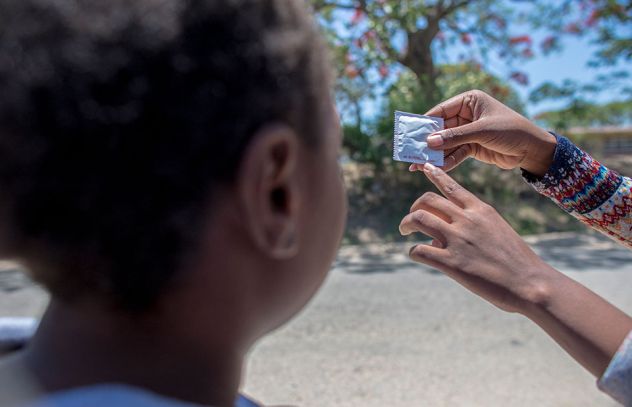A Professor in the Department of Immunology at the University of Pretoria (UP), South Africa, Theresa Rossouw, has warned against allowing the rising cases of Sexually Transmitted Infections (STIs), including a worrying resurgence of syphilis, and the ongoing HIV epidemic in South Africa fester, saying it may trigger some associated health challenges among vulnerable population.
In an article published on the university’s website on Sunday, Prof Rossouw, a clinician scientist who has a double PhD in Immunology and Philosophy, hinted that South Africa, the epicentre of the HIV epidemic, also has the highest regional STI burden, with the KwaZulu Natal province of the country being reported to have the highest HIV and STI rates in the world!
Citing a 2023 report, she stated over 7.7 million South Africans were living with HIV, with 150,000 new infections and 50,000 deaths in the past year.
“This means 1 out of 6 South Africans aged 15-49 years are living with HIV, with rates rising to ±1 in 3 among pregnant women overall and 1 in 2.5 (40%) in KwaZulu Natal,” Prof Rossouw wrote.
She pointed out that, although Antiretroviral treatment (ART) significantly enhances the quality of life for people living with HIV, effectively preventing HIV transmission and acquisition when used as treatment or pre-exposure prophylaxis, respectively, it does not prevent other STIs.
“South Africa is experiencing an upsurge in STIs. A 2023 study of 15-29 year-olds found that 30.2% of females and 17.3% of males had an STI,” she wrote.
According to her in the article, Chlamydia was the most prevalent, followed by trichomonas and gonorrhoea.
“As these infections are often asymptomatic, most cases go untreated, leading to complications like pelvic inflammatory disease and infertility, and further increases HIV risk.
“Cases of syphilis, a disease long assumed under control, has doubled and even tripled in some areas. Untreated, this infection can severely damage the heart, brain, and nervous system. An alarming increase has been reported among pregnant women, threatening not only the lives of these women, but also their infants.”
In her article tied to the theme “My Health, My Right”, Prof Rossouw emphasized the relevance of the condom, which she has described as a simple yet powerful tool that is often dismissed or underutilized.
According to her, condoms are a cornerstone of improving sexual and reproductive health, which when used consistently and correctly, they effectively prevent HIV and STIs by creating a barrier during oral, vaginal, and anal sex.
“Condoms are more than just pieces of latex: they symbolize empowerment, self-respect, and responsibility. Their use asserts individuals’ rights to health, safety, and freedom from preventable diseases. In societies with unequal healthcare access, condoms provide an affordable, accessible means of protection, granting control to individuals,” Prof Rossouw wrote.
She stated that addressing the stigma surrounding condom use requires a cultural shift in sex education. “Comprehensive, age-appropriate education in schools and communities can demystify condoms and normalize their use. Open, judgment-free discussions empower individuals to take control of their health without fear of shame or ridicule,” she stated, adding that harmful gender norms that place the burden of sexual health on women must be challenged.
“Both partners share equal responsibility for safe practices, and promoting condom use should be seen as a mutual commitment to well-being” Prof Rossouw stated.





